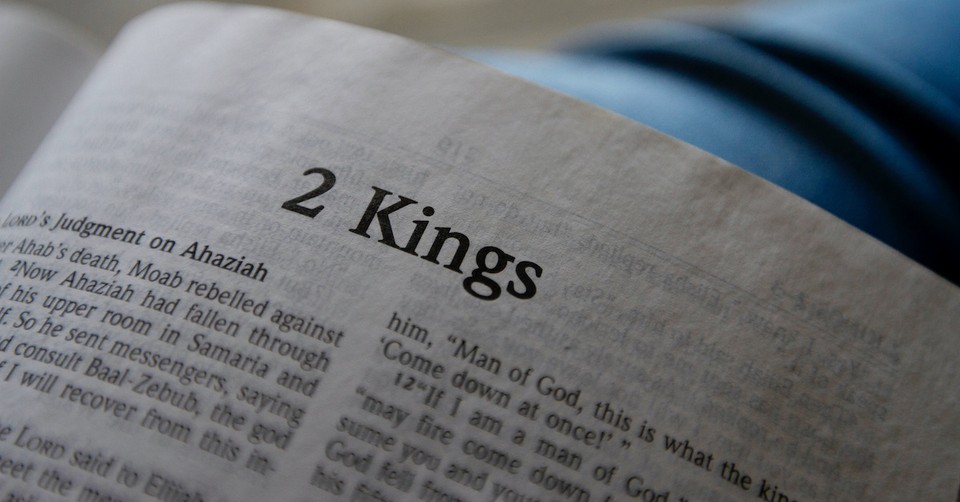What You Need to Know About Hezekiah in the Bible

Hezekiah was a remarkable king, used by God to rescue Jerusalem from the Assyrians and bring reform and revival to Judah. He is known for his God-honoring prayer life, a remarkable miracle, and a tragic choice.
Where Does the Bible Mention Hezekiah?
Hezekiah’s name means “God has strengthened.” He is mentioned in many biblical passages. His story unfolds in 2 Kings 16:20-20:21 and 2 Chronicles 28:27-32:33, and again in Isaiah 36:1-39:8. He is mentioned throughout the Old Testament in Proverbs 25:1; Isaiah 1:1; Jeremiah 15:4; Jeremiah 26:18-19; Hosea 1:1; and Micah 1:1.
Hezekiah’s godliness was in direct contrast to his father’s wickedness. King Ahaz was an evil, idolatrous king. During the reign of Ahaz, the people of Israel said they feared God, but simultaneously they practiced idolatry (2 Kings 17:33). Hezekiah was the 13th successor of David, reigning in Judah’s southern kingdom. He reigned for 29 years—approximately 715-686 BC—beginning at age 25 (2 Kings 18:2). His reign began in the third year of Hoshea’s reign over the northern kingdom of Israel in Samaria (2 Kings 18:1-3), and it coincided with the ministry of two of God’s prophets, Isaiah and Micah.
Verifying his place in biblical history, archaeologists found Hezekiah’s royal seal in 2010 in an area at the foot of the southern wall of the Temple Mount in Jerusalem.
What Reforms Came under King Hezekiah?
For the most part, King Hezekiah faithfully walked with God (2 Chronicles 31:20), and “there was no one like him among all the kings of Judah, either before him or after him” (2 Kings 18:5). He was compared to King David in 2 Kings 18:3. After his wicked father’s reign, Hezekiah committed himself to set things right again in Judah.
King Ahaz had nailed Jerusalem’s Temple doors shut, but Hezekiah reopened the temple and cleansed it. He destroyed Judah’s idols, pagan temples, and altars (2 Chronicles 29:3-19; 31:1-2); and he re-established worship, reinstated the Levitical priesthood, and set up contributions for temple worship (2 Chronicles 29:5; 20-35; 31:2-21). He sanctified the temple vessels that had been desecrated but destroyed the bronze serpent Moses made—because God’s people had turned it into an idol (Numbers 21:9; 2 Kings 18:4). Hezekiah also reinstituted the sacrificial Passover celebration as a national holiday (2 Chronicles 30:1-27).
As Hezekiah restored Temple worship and reformed Judah, revival came to God’s people. They returned to God, His Word, and the Old Testament blood sacrifice for sin (2 Chronicles 29:15, 22-24). God rewarded and prospered him personally too. 2 Kings 18:6-7a says the righteous king “held fast to the LORD and did not stop following him; he kept the commands the LORD had given Moses. And the LORD was with him; he was successful in whatever he undertook.”
How Did Hezekiah Lead Judah in Crisis?
Hezekiah led Judah through several crisis situations. He threw off the Assyrian yoke and defeated the Philistines (2 Kings 18:7-8). During his reign, the ruthless Assyrian empire conquered many nations. With foresight, Hezekiah decided to fortify Jerusalem against siege. He fortified the city walls, expanded his military, and built a 1,750-foot-long tunnel to provide a secret water supply (2 Chron. 32:2-8). Hezekiah’s tunnel still exists under the city of David—excavated by modern archaeologists.
In 701 BC, the Assyrians under King Sennacherib invaded Judah for the first time, marching against Jerusalem. The Assyrians had already conquered the northern kingdom of Israel. Hezekiah tried to appease the Assyrian king, Sennacherib, by giving him silver and gold from his own treasures and the Temple (2 Kings 18:13-16), but this appeasement didn’t last long. The Assyrians openly taunted and defied Judah’s God, likening Him to the powerless gods in nations they already had overcome (2 Kings 18:28-35; 19:10-12). Sennacherib told the people Hezekiah was lying to them about being able to deliver them from his hand (2 Kings 18:29-36).
In the face of these threats, Hezekiah grieved, but he knew where to turn. He sought wisdom from the prophet Isaiah (2 Kings 19:1-5). Isaiah told him Sennacherib would hear a rumor and return to his own land where he would die by the sword (2 Kings 19:6-7). As Sennacherib continued to defy God, he sent a letter to Hezekiah. Judah’s king once again returned to the Temple to pray. As he spread the Assyrian’s letter before the Lord, he prayed a humble, powerful prayer of faith, asking for deliverance so all the kingdoms of earth would know that the Lord alone is God (2 Kings 19:19). Hezekiah recognized it was not his own reputation that was at stake; it was God’s.
A second answer came from Isaiah: Assyria would never enter Jerusalem. The city would be spared (2 Kings 19:32-34). The Lord kept His promise to protect Jerusalem. The angel of the LORD killed 185,000 Assyrians that night (2 Kings 19:35) and those who remained, including Sennacherib, withdrew in defeat to Nineveh the next morning. The Lord brought the victory (2 Chronicles 32:21-22). And Sennacherib? As he worshipped in the temple of his god Nisrok, his sons killed him by the sword as Isaiah had prophesied (2 Kings 19:36-37).
How Did Hezekiah Find Miraculous Healing?
Some time later, King Hezekiah was terribly sick—so ill that Isaiah came to him and told him to get his life in order because death was imminent (2 Kings 20:1-7; 2 Chronicles 32:24).
Weeping with his face toward a wall, Hezekiah asked God to be merciful. He reasoned with the Lord, reminding Him of all the good he had accomplished in faith and obedience to Him during his reign.
God answered the king’s prayer swiftly! Before Isaiah left Hezekiah’s home, the Lord instructed him to tell the king his prayer was heard. Isaiah said Hezekiah would go to the Temple three days later and would live an additional 15 years. After Isaiah applied to a simple poultice, the king recovered (2 Kings 20:5-7). In response to this healing, Hezekiah offered his testimony of faith and a psalm of thanksgiving (Isaiah 38:9-20).
These additional years did not end up being a season of blessing for Hezekiah. Not long after his healing, he made a foolish choice.
What Was King Hezekiah’s Tragic Mistake?
A writer at Ligonier Ministries said, “Incredibly, Hezekiah himself indicates the ongoing failure of God’s people to trust the Lord.” Hezekiah’s heart became proud and he failed to “respond to the kindness” God has shown him (2 Chronicles 32:25). In “Hezekiah’s Tragic End: A Warning and a Promise,” J. D. Greear wrote, “Hezekiah had passed the test of adversity… but he failed the test of prosperity.”
Through a sad turn of circumstances, instigated by Hezekiah’s foolish choice, God poured out His indignation on Hezekiah’s kingdom. When the Babylonians heard about the king’s sickness, Marduk-Baladan, the son of the king of Babylon, sent letters and a gift by envoys to Hezekiah (2 Kings 20:12). Hezekiah had great wealth and honor from the Lord, and God had given him great success (2 Chronicles 32:27-30); but God decided to test his servant—“to know everything that was in his heart” (2 Chronicles 32:31).
Hezekiah failed that test. In pride, the king showed Marduk-Baladan’s ambassadors all the “precious things” in Jerusalem—his personal treasures, the riches of the city, and everything in the arsenal. “There was nothing in his palace or in all his kingdom that Hezekiah did not show them” (2 Kings 20:13).
Hearing of this, Isaiah went to Hezekiah and rebuked him for the foolish pride that endangered Jerusalem and God’s people. The prophet made a terrible prediction (2 Kings 20:16-18). Everything Hezekiah had shown the Babylonians would be taken from him—carried off to Babylon. Even the king’s descendants would be taken to serve as eunuchs in the Babylonian palace. Isaiah’s prophecy came true during King Zedekiah’s reign (2 Kings 24:13-16). The king should have been horrified by the prophecy, but his response showed another fault. Hezekiah only was concerned about peace and safety during his own lifetime (2 Kings 20:19).
In the 15 years after his illness, Hezekiah fathered the heir to his throne, Manasseh. Though Hezekiah had led the nation in reform and revival, his indifference for the future had terrible consequences. Manasseh would be incredibly evil and undo most of his father’s reforms (2 Kings 18-20; 2 Chronicles 29-32; Isaiah 36-39). He brought immorality back to Judah, promoted the worship of pagan gods, and Jewish tradition says he even may have murdered Hezekiah’s long-time friend, Isaiah.
What Lessons Can We Learn from Hezekiah’s Choices?
For most of Hezekiah’s years, he modeled godly character. Because God was with him during his years of obedience, Hezekiah found success in whatever he undertook. The testimony of scripture is, “There was no one like him among all the kings of Judah, either before him or after him” (2 Kings 18:5-7). His passion for God brought a restored Judah into a period of national revival. But Hezekiah’s life took a sad turn—a warning for God’s people who want to finish well. There are at least five lessons we can learn from Hezekiah’s life and choices.
First, the king’s priorities were right though he lived in a wicked, immoral culture. He chose to cling to the Lord, follow Him, pursue holiness for himself and his people, and lead Judah in renewed worship. Likewise, the Lord wants us to resist the pull of the culture and stand strong as lights in the darkness for Him (1 Corinthians 16:13; Ephesians 5:15-17; 6:13; Philippians 2:15).
Second, Hezekiah’s love for God and desire to please Him brought him additional years of life. He could rightly point to how he had served God and done exploits for His glory. The Word of God tells us God desires our love, and He honors those who honor Him (1 Samuel 2:30; Matthew 22:37).
Third, Hezekiah knew where to turn in times of trouble. As a man of prayer, he knew his only hope was in the sovereign God. He prayed to desire God’s glory above all. Voices in the culture can confuse or misdirect us from God’s will, but His Word is wisdom for us, and we must seek the Lord in prayer to be grounded and built up in Him (Psalm 19:7; 2 Timothy 3:15-16; Colossians 2:7).
Fourth, Hezekiah’s downfall was sinful pride. When he bragged about his possessions, he brought disaster to Judah, including the looting of Israel’s treasury and the nation’s eventual captivity. We too must guard against pride—which can be our downfall—and realize our sins often affect more than our own lives (Proverbs 11:2; 16:18; Jeremiah 9:23-24; James 4:6, 10).
Fifth, even though this righteous king made sweeping reforms in Judah, he failed to pass on his love for God to his own son, Manasseh. As parents, we will only pass on a wise and godly legacy with intentional, biblical training (Deuteronomy 6:5-9; Psalm 78:2-4; Proverbs 22:6). We cannot leave this important task to others.
Hezekiah truly was a remarkable king. He is a model to all who desire to walk in close fellowship with God during times of trouble, and a reminder not to forget the Lord in times of blessing.
Resources
- Ligonier.org - ‘Hezekiah’s Failure’
Photo credit: ©Sparrowstock

Originally published January 28, 2021.







